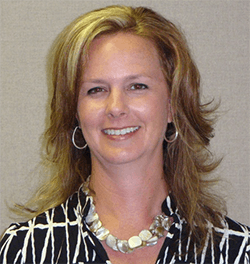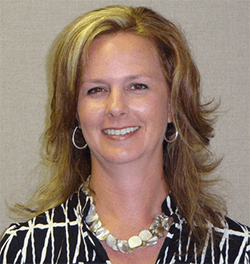Andrea White is global maintenance excellence manager at packaging specialist Sonoco, based in Hartsville, SC. Around three years ago, the company began taking a hard look at its existing and projected maintenance labor needs, identifying in the process that 29% of the hourly skilled workforce was age 55 or older. In response, Sonoco linked up with Apprenticeship Carolina, a state-based apprenticeship network, to establish its own apprenticeship program to develop and train industrial maintenance reliability technicians. White spoke recently with Plant Services about the program and its keys to success.
PS: What and who was involved at Sonoco in helping lay the foundation for success with a formal apprenticeship program?
AW: We picked a few locations that we knew were probably going to be successful from a standpoint of they had very good on-the-job trainers, and there was a local program that was focused on mechatronics or industrial maintenance or something very similar. Once we found those, from an HR perspective, we started getting the data out to everybody on our retirements that were coming up and also the data on the huge shortage of folks that were even going into these (maintenance) roles. Combined with retirements, that was really going to hit us hard. Our CEO said he wanted to see a larger population of apprentices, which helped drive some of the change. Last year we were able to add around 40 apprentices in the U.S., and our plans are to continue to add from there.
PS: Apprenticeships often are thought of as an old-school, Old World model of training, but there has been such resurgent interest in them – why do you think that is?
AW: You take a step back and take a look at the whole general idea of apprenticeship programs—putting them with skilled workers to get on-the-job experience versus just theory that we get from schools—it makes all the sense in the world. I’m a hands-on learner; I can see it just from my perspective. And the other piece is that you get to teach the soft-skills side of things, how to work as a team. You really don’t get that until you get into it.
This article is part of our monthly Big Picture Interview column. Read more interviews from our monthly Big Picture series.
PS: That’s an interesting point. How has the reception from your existing workforce been? Did you find a response of, “Hey, great, this is a chance to pass on our knowledge to the next generation,” or “What are you asking me to do now?”
AW: Honestly, we’ve been very fortunate. It goes back to making sure that you pick the right people for these roles. There’s some people, I call it their God-given gift—they’re just great with passing on their wisdom and they love doing that kind of thing. Most of them, they are loving it. They love to take these young people, kind of like their own children, under their wing and tell them all they know. They make sure that they’re safe, and again from a soft-skills perspective, teaching them to come in to work on time, how critical that is, how critical it is to communicate with leadership, which they have had lots of experience with. We have been very fortunate with our on-the-job trainers.
PS: What are some of the key things you’ve learned? What’s critical for an apprenticeship program for success and for growing and evolving?
AW: I would say again the most critical part is your on-the-job trainer. They are the ones that are with your apprentice day in and day out, they shape the work life especially of that apprentice.
The second piece is creating strong partnerships with your local school systems, and for us that has become not only the technical schools but the local high schools. They’re the ones that are funneling people one way or the other — toward technical, toward four-year, toward straight out into the workforce — so we’ve got to promote manufacturing with those folks at the high school level. Again for us quite honestly, a big key was utilizing Apprenticeship Carolina. They taught us everything we needed to know—it took some of the stress away from the typical paperwork, with the rules and regulations around apprenticeships.
My ultimate goal is to never have to do a search again to fill a full-time maintenance role, that we use our existing apprenticeship pool to transition right over. We’d like to make sure our plants’ maintenance funnel is always full and they don’t have to worry about leaving a job open for a year because they can’t find anybody to move into it.

